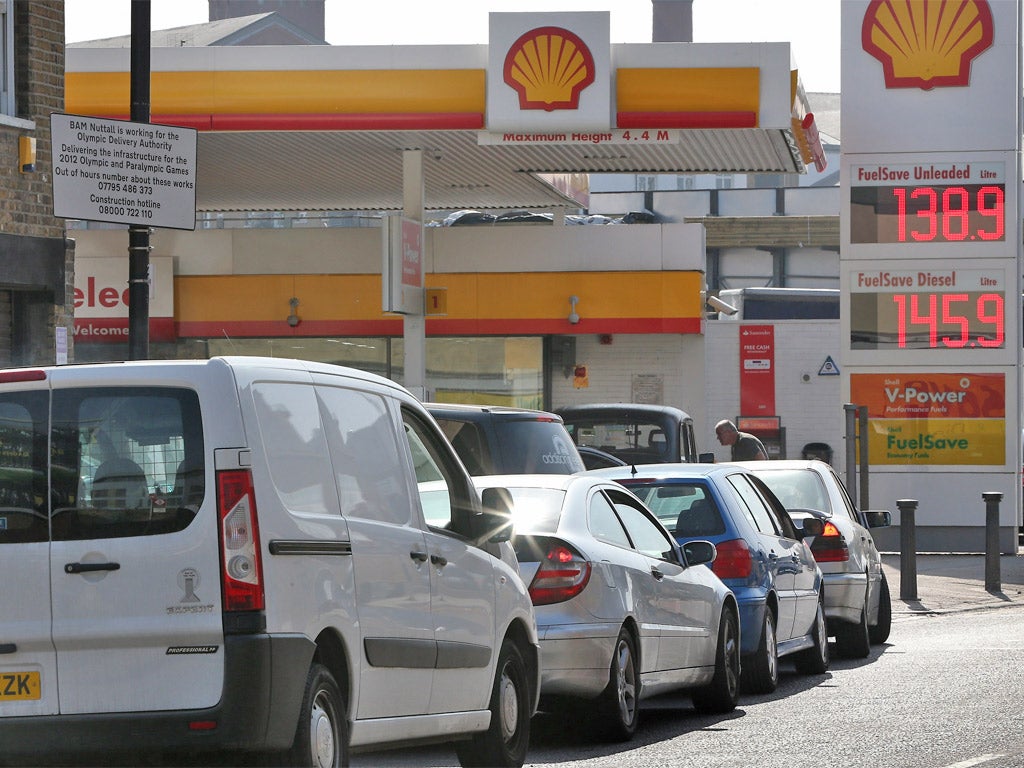New fuel crisis in the pipeline as tanker drivers reject deal

Your support helps us to tell the story
From reproductive rights to climate change to Big Tech, The Independent is on the ground when the story is developing. Whether it's investigating the financials of Elon Musk's pro-Trump PAC or producing our latest documentary, 'The A Word', which shines a light on the American women fighting for reproductive rights, we know how important it is to parse out the facts from the messaging.
At such a critical moment in US history, we need reporters on the ground. Your donation allows us to keep sending journalists to speak to both sides of the story.
The Independent is trusted by Americans across the entire political spectrum. And unlike many other quality news outlets, we choose not to lock Americans out of our reporting and analysis with paywalls. We believe quality journalism should be available to everyone, paid for by those who can afford it.
Your support makes all the difference.The prospect of petrol shortages re-emerged last night after tanker drivers rejected a proposed deal offered by six fuel-distribution companies.
About 60 officials from the Unite union overwhelmingly turned down an agreement drawn up after six days of talks that ended amid optimistic signs last Friday.
But the union also urged motorists not to panic-buy and said it had not yet decided whether to name any strike dates.
The AA advised drivers to continue with their normal pattern for buying fuel, saying that talks were likely to resume. "There is no shortage of fuel and we don't want to recreate another self-inflicted shortage," said Edmund King, the AA president.
It is understood that progress was made on a number of issues including pensions, health and safety and training. Diana Holland, Unite's assistant general secretary, said: "While there has been some progress it is clear that our members need more guarantees and assurances from the employers about their commitment to meaningful minimum standards."
Unite officials contacted the conciliation service Acas and said it hoped employers would agree to hold fresh talks in the coming days. The union will have to name strike dates, or other forms of industrial action, by tomorrow afternoon unless employers agree to extend the deadline.
A spokesman for Hoyer, one of the firms involved, described Unite's decision as "a serious blow" and said the employers remained "open to negotiation".
Peter Harwood, chief conciliator at Acas, said: "Naturally, we are disappointed at today's outcome, following the parties' intensive talks."
Join our commenting forum
Join thought-provoking conversations, follow other Independent readers and see their replies
Comments